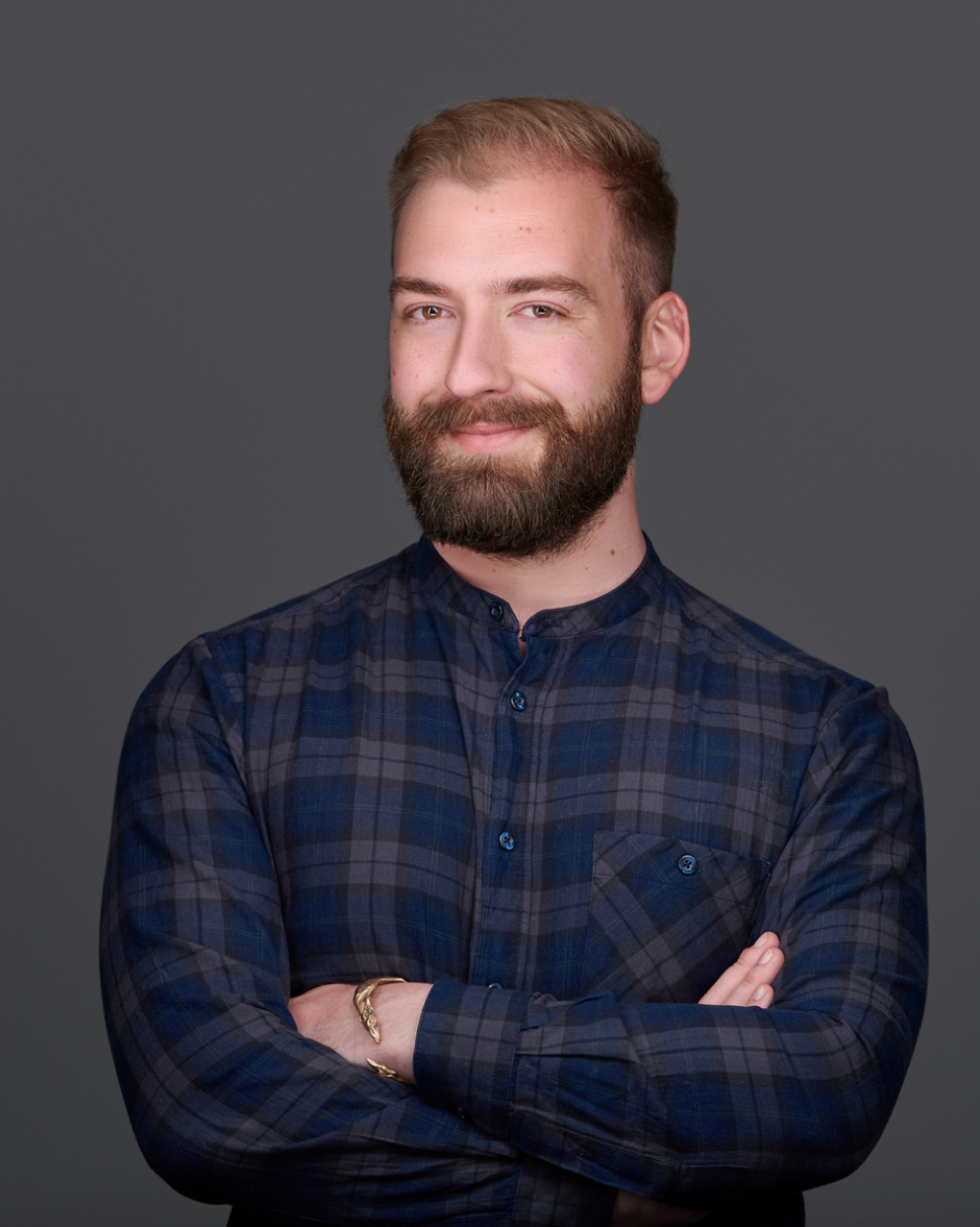For this week’s BabelChat, I sat down with our HubSpot CRM platform consultant, Hannah Fisher, to talk about pigeon-holing, puzzle-solving, and HubSpot.
For Hannah Fisher, one of our HubSpot CRM platform consultants, work is a puzzle she takes great delight in solving. Chatting with her, I was struck by how much her curiosity seems to drive her. We’re all an inquisitive bunch here at BabelQuest, but where, for most of us, that translates into an appetite for personal development and learning, for Hannah it’s a magnifying glass through which she perceives everything she does.
Every client problem is something to be studied, turned around in her hands so that no detail goes unnoticed. It’s perhaps this level of scrutiny that enables her to solve for her clients so effectively, no matter how outside-of-the-box, bespoke, or technically creative the approach.
In this week’s BabelChat, Hannah reveals where this fascination comes from and how she uses it to solve for her clients and unlock the full potential of their HubSpot platforms.
Got a question for Hannah? She loves a challenge, so get in touch today.
Thomas Brown: Everyone’s HubSpot story is different. What’s yours?
Hannah Fisher: I first started using HubSpot in 2018 when I worked within the marketing department of an independent school in the UK. At the time, I was just using Marketing Hub, but I already thought it was an amazing tool. When Marketing was merged with Admissions I got to use Sales Hub for the first time. In Education, Admissions plays the role of Sales, and I was blown away that we could use the one platform for both the roles that we played within the department. It really helped to align the whole student recruitment journey for us and I remember thinking "this is amazing!".
Whether marketing or admissions, there was something very satisfying about having a goal and being able to go into HubSpot and use the platform to help me hit it. The whole platform lent — and still lends — itself very well to the industry. When I eventually started looking for a new role, I was actually offered a position at a different college administering HubSpot there.
It sounds like you could have gone far in Education. How did you find your way from the college campus to agency life?
I loved the industry. But I didn't want to get pigeon-holed in Education or anywhere else. So when I moved, I decided to try something different. I found myself a role in Tourism instead.
The work I did there was much closer to what I do now. Scoping out what the business needed from its HubSpot portal. Mapping out its requirements. It was my first taste of in-depth solution design. The solution was submitted as part of a funding proposal for us to build and launch a digital tourist information centre, including creating an online knowledge base of FAQs for B2C website visitors to navigate and a B2B partner portal to collate online resources and information for partners. Then Covid hit. I don’t need to tell you how hard Tourism was impacted. I lost my role soon afterwards (although, in a full-circle moment, I was hired as an external consultant to deliver the project a year later when I was working in my first HubSpot agency).
I stepped into Telecoms next. This business used HubSpot too. By this point, I was thinking “actually, HubSpot is really interesting”. And I felt fortunate, in some ways, to have been able to work with it in three entirely different verticals. To apply it in very different ways, and each time turn it into something that solves for a different industry. And that’s when I thought that maybe I should do this agency-side, where I can actually keep doing this thing that I love doing for all kinds of clients and industries. And that's how I got to this point.
For anyone who doesn’t want to be pigeon-holed to one industry, an agency is the perfect environment, right?
Yes, exactly that. I remember saying to Becky [our managing director] once, “I feel like working in an agency is like learning in dog years — one year of agency life is like seven in an in-house role!”. Agency-side, you seem to learn so much faster than in-house because you’re constantly looking at different challenges, or the same challenges in different environments, or you’re transferring skills you’ve learned in one industry or aspect of your work into another, and adapting them slightly as you do so. I love working at that pace.
Speed and speed of change is something that comes up a lot in our industry. How have you seen HubSpot change?
When I first started using HubSpot it was a marketing tool. That's what it was known for and that was why people bought it. Today I think they've successfully managed to shake that label off and be viewed as a platform from which all the different departments of a business can grow, rather than just the lead generation/marketing piece.
For a business that’s just waking up to HubSpot’s capabilities, what do you think is really important?
Planning things out and starting simple. The platform has become massive and it's easy to get carried away. If you open it up and click on everything and try to use all of it because it’s there and you’re excited to use it for more than just your marketing, rather than because that was your plan, you're liable to trip over yourself. Start with a simple plan and stay focused on getting your users bought into the platform.
That adoption piece is often overlooked, but getting everyone using it, rather than just one person who’s geeking out on it and making this really complex platform no-one else knows how — or wants — to use is key to unlocking its full potential.
What other mistakes do you see businesses making when you jump into their HubSpot platform for the first time?
The biggest one is not being aligned in how they're using the platform. Even down to really simple things like naming conventions. Having a blueprint outside of HubSpot or one person internally who takes ownership of that is useful because you get a bird's eye view of what's going on, instead of, say, two teams building workflows that essentially do the same or similar things. It just becomes a hot mess of conflicting information.
A hot mess! I like that. There must be something very satisfying about helping your clients to tidy those up?
I like solving problems. So when someone sends us a process flow and they're saying "I’m trying to do this but I'm not sure how" I enjoy getting my head around the challenge and puzzling it out in a sandbox until I've cracked it.
And if we can't find a way to get it to work, I’ll be the first person to reach out to HubSpot for our clients and leverage our connections there. Perhaps we’ve overlooked something or there’s an upcoming solution on the product roadmap that we could use.
As well as relishing the challenge, it feels good to help people. So when a client has an issue in their business and it's a real blocker, I like being able to solve it for them.
By all accounts, they love working with you too. What does it mean to you to be “a good HubSpot user”?
Someone who’s curious. HubSpot grows at such a rapid pace that you’ll constantly be reviewing the updates if you want to keep up. For someone who’s naturally inquisitive, that will come so much easier. Similarly, I think it’s important to never feel like you “know” HubSpot, because that’s the road to complacency, and it’s a different product every day!
Well you do a great job of appearing to know it, at least! How do you keep up with all the product updates?
HubSpot has a really good user community. I can’t think of another technology provider with a community like it. You’ve only got to jump onto LinkedIn to see users from all backgrounds, industries, and walks of life raving about this feature or that. So that’s really useful.
There’s also HubSpot’s owned resources — its Knowledge Base, the HubSpot Academy, the HubSpot Community. I think being an active member in these places makes keeping on top of the technology much easier for me. It’s also really motivating as well because everyone engaging with these resources is so passionate for the product. We just bounce off each other, which is something HubSpot has managed to nurture really successfully. There’s a really engaged community.
It sounds a little like you’re puzzling out HubSpot itself.
That’s exactly what I do. But HubSpot’s only one piece of the puzzle. There’s another piece, which is the business expertise my team [Expert Practices] brings in our strategic advice. And the rest of the puzzle, which is the client’s business. Their challenges. Their setup. Their goals. Their environment. All of it scattered like jigsaw pieces across the floor.
We’re not just helping them to fit HubSpot into their business; we help to put those pieces back together. To build up a picture of their business as it could be, if they aligned these teams and integrated these solutions and refined or unified these processes.
When a client tells me they want to use HubSpot to achieve something, I’ll always ask them why before I recommend how. I suppose that’s all any puzzle is, really. A question waiting to be answered. I hope I’m helping my clients to answer theirs for years to come.
Heading
Separated they live in Bookmarksgrove right at the coast of the famous Semantics, large language ocean and many more stuff and more more more


Tom is BabelQuest's Principal Copywriter. He has a PhD in Creative Writing from the University of Southampton and is a novelist with Sparkling Books.


.png?width=50)

.png?width=50)
.png?width=50)


































